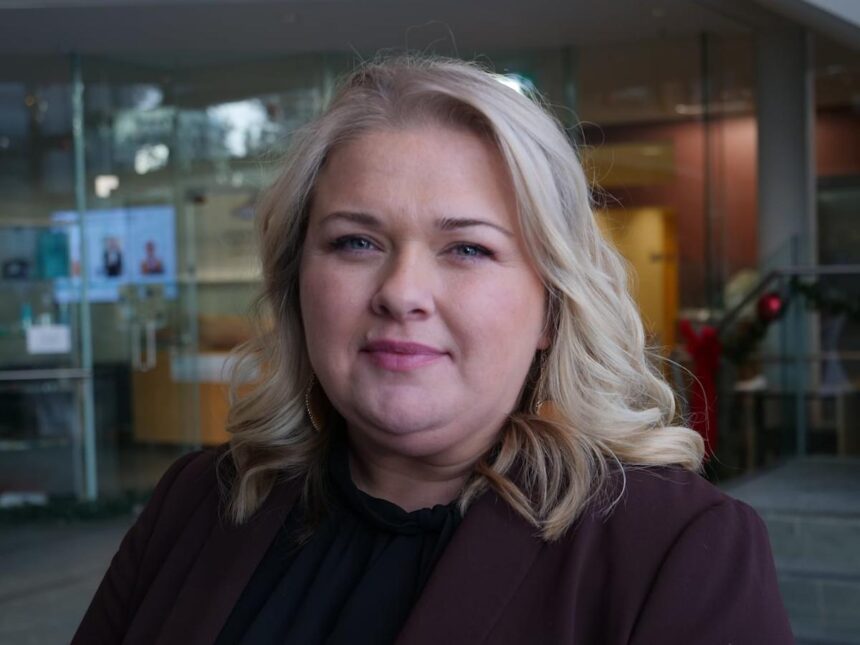In an unprecedented move yesterday, Northwest Territories Education Minister R.J. Simpson announced a formal investigation into the Dehcho Divisional Education Council, citing “serious concerns” about its operations and leadership.
This marks the first time in nearly two decades that the territorial government has launched such a probe into a regional education authority, signaling potentially deep-rooted issues within the system responsible for educating hundreds of students across the Dehcho region.
“After careful consideration of reports from multiple sources, I believe this investigation is necessary to ensure all students in the Dehcho are receiving the quality education they deserve,” Simpson said during a press conference in Yellowknife.
The investigation will examine financial management practices, hiring procedures, and overall governance at the Council, which oversees schools in Fort Simpson, Fort Providence, and several smaller communities along the Mackenzie River.
Community members have expressed mixed reactions. Sarah Hardisty, who has three children in the Dehcho school system, told me she’s been concerned about high teacher turnover for years. “Every September my kids get new teachers who don’t know the community. By Christmas, some are already talking about leaving. Something isn’t working.”
The Department of Education has appointed former Yukon deputy minister Pamela Hine to lead the review. Hine brings significant northern experience, having overseen similar assessments in Yukon and Nunavut.
According to territorial records, the Dehcho Council received approximately $19.8 million in funding last fiscal year—roughly 12% of the NWT’s total education budget. However, graduation rates in the region have remained below territorial averages for the past five years, based on statistics from the NWT Bureau of Statistics.
The investigation comes at a particularly challenging time for northern education systems. Pandemic-related learning disruptions hit remote communities especially hard, with internet connectivity issues hampering online learning efforts in 2020 and 2021. Some Dehcho communities reported student attendance dropping below 60% during those periods.
Jonas Norwegian, a former Council member who served from 2015-2019, believes the issues run deeper than recent disruptions. “There’s been a disconnect between Edmonton-trained administrators and the communities they serve. Many don’t understand the realities of teaching in fly-in communities or how to incorporate Indigenous knowledge effectively.”
The Dehcho First Nations organization, while not directly involved in education governance, has expressed concern about the investigation’s potential impacts. “We hope this process respects the unique needs of our communities and recognizes the importance of Indigenous approaches to learning,” said Grand Chief Gladys Norwegian in a written statement yesterday.
The Council itself has remained relatively quiet. Current chairperson Linda Hardisty declined detailed comment but noted they “welcome any process that improves outcomes for our students” and “will cooperate fully with the appointed investigator.”
This investigation reflects broader tensions in northern education systems, where western educational models often clash with Indigenous approaches to learning. The 2019 NWT Education Renewal Report highlighted this ongoing challenge, suggesting that meaningful reconciliation requires fundamental changes to how education is delivered in predominantly Indigenous communities.
Simpson emphasized the investigation isn’t intended as a punitive measure but rather a path toward improvement. “Our goal is simple—ensure every child in the Dehcho receives an education that prepares them for whatever future they choose, while honoring their cultural identity.”
The investigation is expected to take approximately four months, with a final report due to the Minister by early spring. Community consultations will be held in affected communities, though COVID protocols may require some virtual sessions.
For parents like Peter Sabourin in Fort Simpson, the investigation offers a glimmer of hope. “My parents went through residential school. My kids deserve better than what they’re getting now. If this helps fix things, I’m all for it.”
As someone who’s covered northern education policy for nearly a decade, I’ve observed that these investigations often reveal systemic issues beyond any single region. The Dehcho situation may ultimately highlight challenges facing the entire territorial education system—chronic underfunding, difficulties recruiting and retaining qualified staff, and the ongoing work of decolonizing curriculum and teaching methods.
The outcome will be closely watched across the North, where similar tensions between centralized education authorities and community needs exist in many regions. Whether this investigation becomes a catalyst for meaningful change or simply another report gathering dust remains to be seen.






